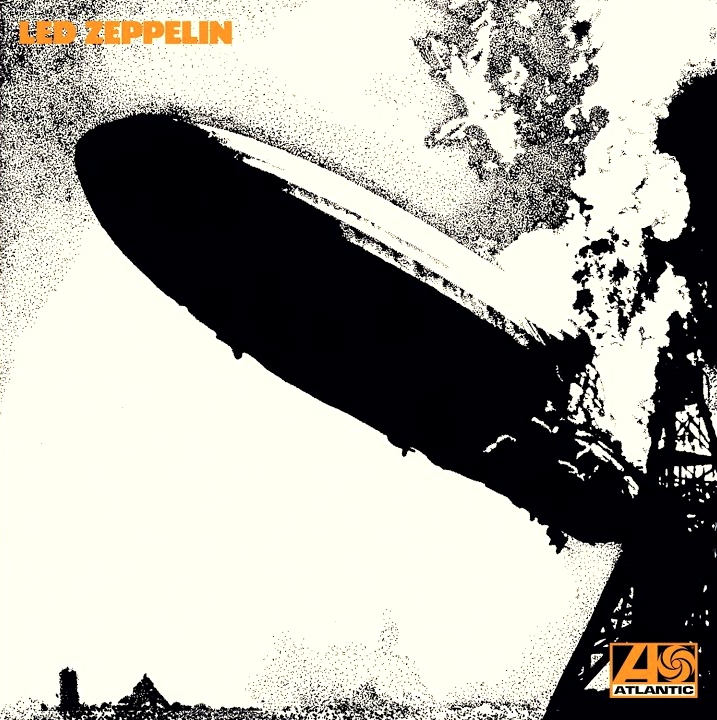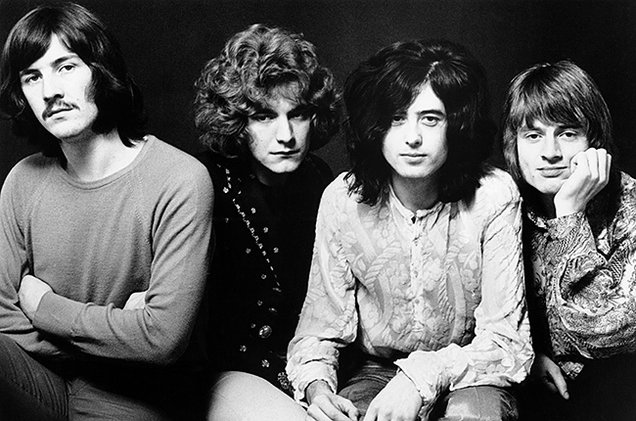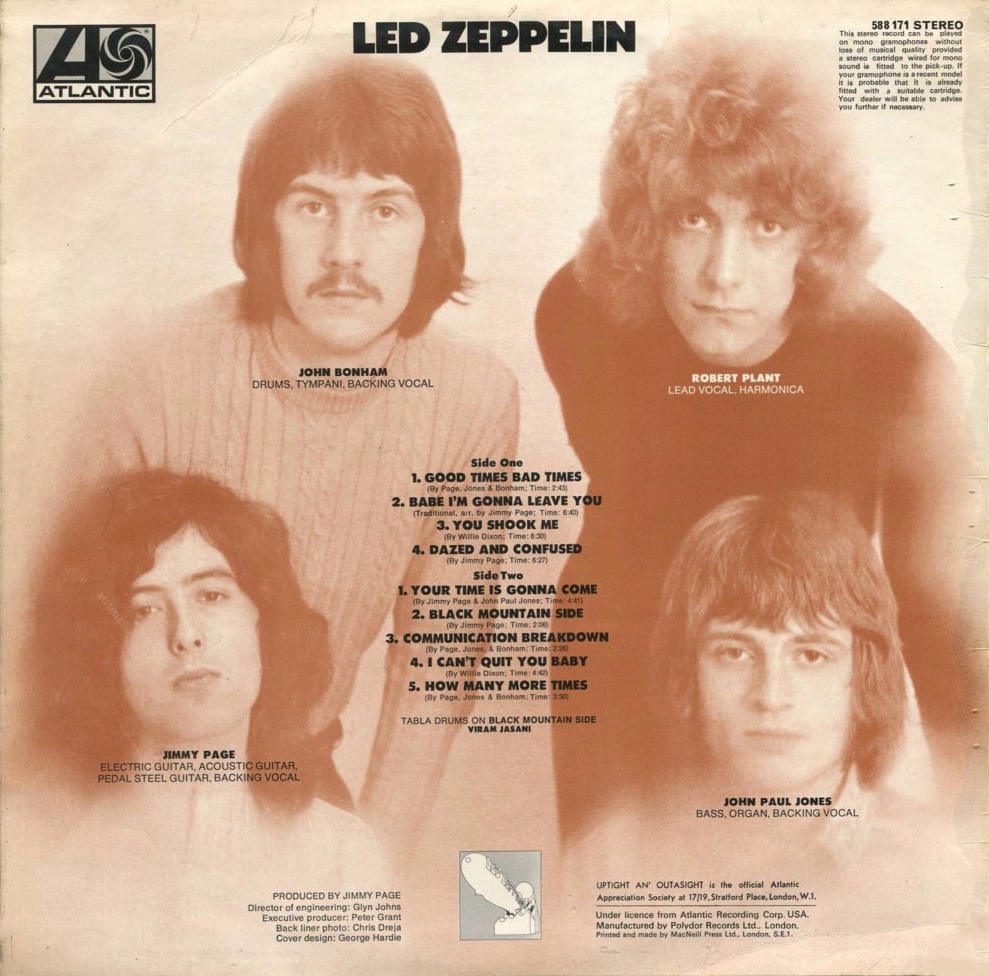 If every girl you knew in college back in the day had a copy of Simon & Garfunkel’s Parsley, Sage, Rosemary & Thyme, every guy probably had a copy of this album, Led Zeppelin’s self-titled debut LP.
If every girl you knew in college back in the day had a copy of Simon & Garfunkel’s Parsley, Sage, Rosemary & Thyme, every guy probably had a copy of this album, Led Zeppelin’s self-titled debut LP.
When the Yardbirds disbanded in 1968, somehow Jimmy Page (a late arrival in the band’s ever-shifting line-up) wound up with rights to the name and an obligation to honor some Yardbird concert dates in Scandinavia still on the books. Page recruited fellow session musician John Paul Jones on the bass, added Robert Plant as vocalist when Page’s original choice, Terry Reid, turned him down and finished off with John Bonham on drums.
The group honored those concert dates as “The New Yardbirds,” playing a mix of Yardbirds songs as well as working up some new material. Returning to London in the fall of 1968, the lads decided to carry on as a group, but with a new name. Legend has it that, at one time, Page, Jeff Beck, Keith Moon and John Entwistle considered forming a rock band. Moon remarked that the group would go over like a lead balloon. “More like a lead zeppelin,” added Entwistle. So, Page thought the name would suit their new effort.
 Lacking a recording contract, the group took the then-unheard of step of recoding their first album on their own. Studio time was paid for by Page himself and the group’s manager, Peter Grant. That meant two things: 1.) the band could record exactly what they liked with no interference from a record label and 2.) they needed to record it quickly because they were paying for the studio time out of their own pocket.
Lacking a recording contract, the group took the then-unheard of step of recoding their first album on their own. Studio time was paid for by Page himself and the group’s manager, Peter Grant. That meant two things: 1.) the band could record exactly what they liked with no interference from a record label and 2.) they needed to record it quickly because they were paying for the studio time out of their own pocket.
The album we know as Led Zeppelin was recorded quickly, in about 36 hours over just a couple of weeks. Page served as producer while bringing in his childhood mate, Glyn Johns, to serve as engineer. Most of the songs were actually recorded live with the band playing as one in the studio. Fortunately, the group had worked out most of the album’s songs while touring as the New Yardbirds and we’re already fairly tight as an ensemble.
With the completed album tucked under his arm, manager Grant had little trouble attracting label interest, signing Led Zeppelin to Atlantic Records fairly quickly. Their debut disc was released in the States in January of 1969 and in their native UK in March of the same year. Surprisingly, the initial reviews for the record were not good. Rolling Stone remarked that the LP had “little that its twin, the Jeff Beck Group, didn't say as well or better three months ago.” Several other rock publications offered equally lackluster reviews.
 However, the disc quickly became a smash on the then-emerging genre of “progressive rock” radio stations with virtually all of the album’s track getting substantial airplay. Grant also made the shrewd decision to bringing the boys to America almost immediately where their bombastic, exciting stage show generated sensational word of mouth.
However, the disc quickly became a smash on the then-emerging genre of “progressive rock” radio stations with virtually all of the album’s track getting substantial airplay. Grant also made the shrewd decision to bringing the boys to America almost immediately where their bombastic, exciting stage show generated sensational word of mouth.
Now, of course, the album is correctly lauded as a classic. It pioneered the smash-up of hard rock with traditional blues that came to dominate the music scene as we moved out of the 60s into the 70s. The group is also credited with pioneering the genre of rock that has come to be known as heavy metal, although their status as one of rock’s most popular acts meant Led Zeppelin has really transcended genre labels.
Led Zeppelin consistently makes those lists of the “Greatest Rock Albums” of al time and has been reissued (often with outtakes and other material added) mulitple times over the years.